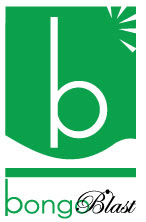Eugeniah Madhidha
Light seems to be shining at the end of a dark tunnel for the Tanzanian market, which for eons has been battling the presence of counterfeit goods, as the country’s products watchdog, Tanzania Bureau of Standards (TBS), has made some inroads by introducing a new certification mark for all genuine imported goods.
The import standardization mark was presented to stakeholders by TBS Director, Charles Ekelege, during a pre-implementation conference for stakeholders held at the watchdog’s headquarters in Dar es Salaam recently.
The introduced mark is meant to ensure that genuine imported products are easily identified by consumers. This comes at a time when the war agai8nst fake commodities seemed to have been lost in this country because the rate at which counterfeits were invading this country then, it wasn’t going to be surprising if we ended up having fake people.
The country’s free economy, globalization, capitalism and laxity on policing have been blame for a long time as the primary contributing factors fueling the prevalence of fake goods on the market.
The problem of fake goods in this country has been with us for a long time now. And, this year alone TFDA had to deal with several cases in a bid to redress the situation.
Early this year, the Tanzania Food and Drugs Authority (TFDA) banned the anti-malaria drug Metakelfin and ordered all vendors and health centres to return the remaining stocks to their wholesale suppliers.
TFDA Director Ms Magreth Ndomondo-Sigonda, was quoted saying that the order goes simultaneously with stopping the same drugs from being imported, distributed and sold in the country.
“We're stopping use of this drug until further notice,” Sigonda insisted during a press conference held at the TFDA offices in Dar es Salaam. Explaining the move, she said TFDA had noticed that many tablets imported and sold currently were counterfeits and had a poor efficacy in the curing of malaria.
“Vendors who bought the medicine legally should be refunded by the sellers ,” the TFDA director said. Laboratory observations conducted in March this year noted that drugs labeled Batch Number E378A were counterfeits and not fit for human treatment. Other batches in the list were G894A, G895A, G043A, G035A E378A and E088A. These have a low content of Sulphamethopyrazine and Pyrimethamine 25mg which are useful for curing malaria,” she said.
As if this problem was not enough, the media revealed the prevalence of fake S-26 breast milk substitute baby formula. This was condemned by a wide section of the society and revealed that thousands of babies’ lives were at risk in the country as the fake milk had negative effects on their health.
This forced TFDA to act swiftly and confiscate a total of 38,560 tins of S-26 infant formula manufactured by Pharmacare Woodmead- Sandton, South Africa which they sampled and declared unfit for human consumption after laboratory tests.
Then of late, the Tanzania Solar Energy Association (TASEA) has revealed that substandard and counterfeit solar panels are being sold in various shops selling electrical appliances in Kariakoo, Dar es Salaam,.
TASEA Executive Secretary Eng. Mathew Matimbwi, was quoted recently saying that, “after receiving many complaints, they carried out investigations and realized the existence of counterfeits in some shops visited during the exercise.
Eng. Matimbwi said that most of the solar panels that don't have instructions inscribed at the back side are said to be made in China and were sold for up to 400,000/- in some shops which is too expensive for 'wananchi'.
These are just but few incidents where the watchdogs have battled this social misnomer and in trying to contain it, TBS, recently announced that they were planning to carry out pre-shipment verification of consignment (PVoC) from the country or place of origin.
This move is meant to verify the status of all goods imported into this country before they even leave their country of origin.
And, addressing stakeholders when presenting a certification mark for imported item, Ekelege said: “We want to reach a point where there is no substandard product in the market, be it locally manufactured or imported,” adding that that the mark will go a long way in enhancing fair competition in the market.
To make sure that this will work, the director said, violators of the rules governing the mark will face various penalties, including licence termination, orders to withdraw products from the market and destruction of the product or returning it to the country of origin at the investor’s expense.
Addressing the same gathering, Acting Head of Quality Management Department Eng. Joshua Katabwa said the import standardization mark shall be affixed on all approved items, and called upon importers to comply with this new requirement.
“Electronic verification of the authenticity of the mark on products shall be conducted during inspections and any mark not traceable to the data base shall be treated as illegal and the culprits shall be traced for legal action,” he added.
Though this is a turning point in the fight against fake products and will go a long way in curbing the cancer, more need to be done to educate wananchi on the mark so that they know and identify original goods from fake ones using the mark.
As long as wananchi are in the dark in as far as the existence of the mark is concerned then this will be tantamount to a man winking at a woman in the dark. In other words it will be wasted effort as the general public will continue being taken advantage of.
Ends.
Subscribe to:
Post Comments (Atom)


 Dar Es Salaam Time
Dar Es Salaam Time











No comments:
Post a Comment